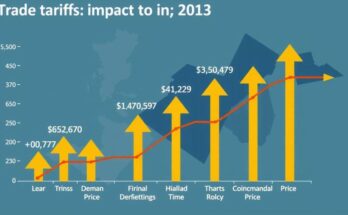In a significant collaboration, the Austin Peay State University (APSU) GIS Center alongside the Department of Mathematics and Statistics has entered into a ten-year Intergovernmental Support Agreement (IGSA) with Fort Campbell. This partnership represents the mathematics department’s inaugural IGSA and introduces a novel approach to understanding the economic ramifications that Fort Campbell has on the region.
Led by Dr. Michael Wilson and Dr. Raman Sahi, this initiative aims to thoroughly assess the economic impact of Fort Campbell, which is expected to reach far beyond the immediate area. Dr. Wilson noted, “By looking at retiree ZIP codes alone, we expect to find the base’s influence extends well beyond the immediate surrounding counties.” An example provided illustrates that many individuals traverse great distances for essential services, highlighting the extensive effects on local economies.
The study will cover various aspects such as local employment rates, tax incomes, construction contracts, and the settlement choices of military retirees. The researchers aim to forge a comprehensive database that merges geographic and statistical analysis to yield insightful evaluations of the military installation’s local effects.
Dr. Sahi emphasised the opportunity this project provides for students: “This project gives our students real-world experience right in their backyard,” providing students with industry-relevant skills to prepare them for local job markets. The research has the potential to draw in new industries, allowing military-affiliated students to pursue careers within their familiar environment.
The partnership also holds financial benefits, offering a savvy alternative to traditional national contractors who often engage larger firms at hefty costs. By utilising local capabilities, Fort Campbell can conserve government funds while simultaneously fostering community involvement in the project.
Students will play an integral role by gaining practical skills in data and statistical analysis, contributing towards the continuation of the study. Dr. Wilson highlighted the importance of maintaining up-to-date information: “Our goal is to make sure the data stays up to date every year,” ensuring the project’s relevance and continuous value.
The database created from this initiative will not only assist in ongoing research but also support local economic development efforts. While sensitive information shall remain confidential, accessible public data will enable further analysis by students, faculty, and community leaders.
Austin Peay State University has partnered with Fort Campbell through a 10-year Intergovernmental Support Agreement to conduct economic impact studies. The initiative aims to assess the military installation’s effects on local employment, tax revenue, and more, employing both faculty and students in this endeavour. The resulting database will support future research and local economic development, with a focus on keeping data current and relevant.
The APSU and Fort Campbell partnership marks a groundbreaking advancement in understanding the military base’s economic influence. Offering collaborative and practical training for students while simultaneously benefitting the region’s economy, this project promises valuable insights and future research opportunities. It’s a union that stands to reshape local economic landscapes through data-driven analysis, all backed by the collective efforts of academia and military institutions.
Original Source: www.clarksvilleonline.com



